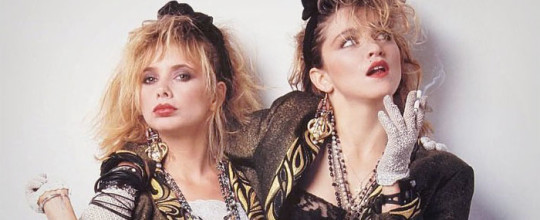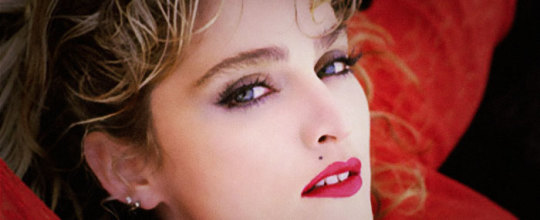Why ‘Erotica’ and ‘Sex’ Still Matter
On the 25th anniversary of the release of Madonna’s Erotica album, Rolling Stone discusses how the icon’s 1992 projects tackled homophobia, AIDS hysteria and female, queer desire, and set the blueprint for modern pop.
In 1990, Madonna was as astronomically popular as a boundary-bulldozing, unapologetically bacchanalian performance artist could get. Drawing from Harlem drag balls, Vogue went Number One nearly worldwide. The tour showcasing it, Blond Ambition, mixed spectacle with social commentary so sharply that it reinvented the pop concert and yielded the smash documentary Truth or Dare. And that year’s The Immaculate Collection, her first greatest-hits set, would eventually rank among the world’s biggest-ever albums, despite MTV banning its gender-blurring and cinematically exquisite Justify My Love video.
Some loathed this classically trained dancer/DIY provocateur – a megastar peer of Prince and Michael Jackson since her 1984 blockbuster Like a Virgin – with a venom reserved for successful women forging their own path. But for her vast audience, she was nothing less than liberating, and her uninterrupted string of hits defined pop for a decade. What some considered violations of taste made her more commanding: Even the way she toyed with ordinarily unflappable talk show hosts like David Letterman was more rock & roll than actual rock stars.
Nearly everything changed two years later with Erotica and Sex. Released respectively on October 20th and 21st, 1992, the first fruits of her multimedia Maverick entertainment company weren’t flops; her fifth studio album, Erotica racked up six million sales worldwide and yielded several hits, while Sex – an elaborate coffee table book created with fashion photographer Steven Meisel and Fabien Baron of Harper’s Bazaar – sold out its limited 1.5 million printing in a few days, an unparalleled success for a $50 photography folio bound in metal and sealed in a Mylar bag to evoke condoms. It remains one of the most in-demand out-of-print publications of all time.
But both record and book, despite a few positive reviews, inspired widespread vitriol. “There’s nothing erotic about it, unless one finds the idea of a singing death mask sexy.” That was Entertainment Weekly’s take on Erotica’s rendition of Fever, but it summed up many assessments of the entire album. Others appreciated Sex’s forthright presentation of LGBTQ sexuality and S&M even less. “Of course, some of us actually like the opposite sex; some of us believe it is possible to have great sex without whips, third parties or domestic pets,” groused not some reactionary macho windbag, but a female film critic for The New York Times.
Why did projects Madonna intended to open minds shut so many down?
As her stardom snowballed through the Eighties and early Nineties, AIDS decimated the scene that helped birth Madonna. Taking music and fashion cues from lower Manhattan’s punk rebelliousness and midtown’s disco hedonism, pre-stardom Madonna was a fixture in the bohemian underground chronicled by photographer Nan Goldin in her autobiographical The Ballad of Sexual Dependency, a likely Sex influence, along with the severe stylization of Helmut Newton, Guy Bourdin and Robert Mapplethorpe. By 1992, AIDS claimed Goldin’s subjects, Mapplethorpe himself, much of the art world (including Madonna’s friend Keith Haring), and a growing chunk of Madonna’s audience. It also killed and would go on to kill her cohorts, including Blond Ambition dancer Gabriel Trupin. Just as racism and the Black Lives Matter movement shaped Beyoncé’s Lemonade, AIDS and ACT UP – the AIDS Coalition to Unleash Power, the direct action advocacy and educational group whose motto was “Silence = Death” – yielded Erotica and Sex.
Madonna previewed both works with the lead single and video for Erotica, which boldly picked up where Justify My Love left off, and is narrated by Mistress Dita, her Sex dominatrix alter ego. “Give it up, do as I say,” she growls over gritty funk that combines the clatter of R&B’s New Jack Swing with house music’s heavy bottom. “Give it up and let me have my way.”
But in much of what follows on the LP, the woman behind the vixen doesn’t get what she wants: Her relationships fall apart as she awakens from spells cast by deceptive lovers (Bye Bye Baby, Waiting, Words). Booze, chain–smoking, and anonymous sex can’t numb the pain (Bad Girl), and a friend steals her man (Thief of Hearts). Meanwhile, comrades die (In This Life) while kindred outcasts struggle (Why’s It So Hard). “I’m not happy this way,” she sings in Bad Girl. Sensuality was merely part of the picture: Erotica is Madonna’s concept album about love and intimacy under the shadow of plague.
Continue reading this story by Barry Walters on RollingStone.com .







